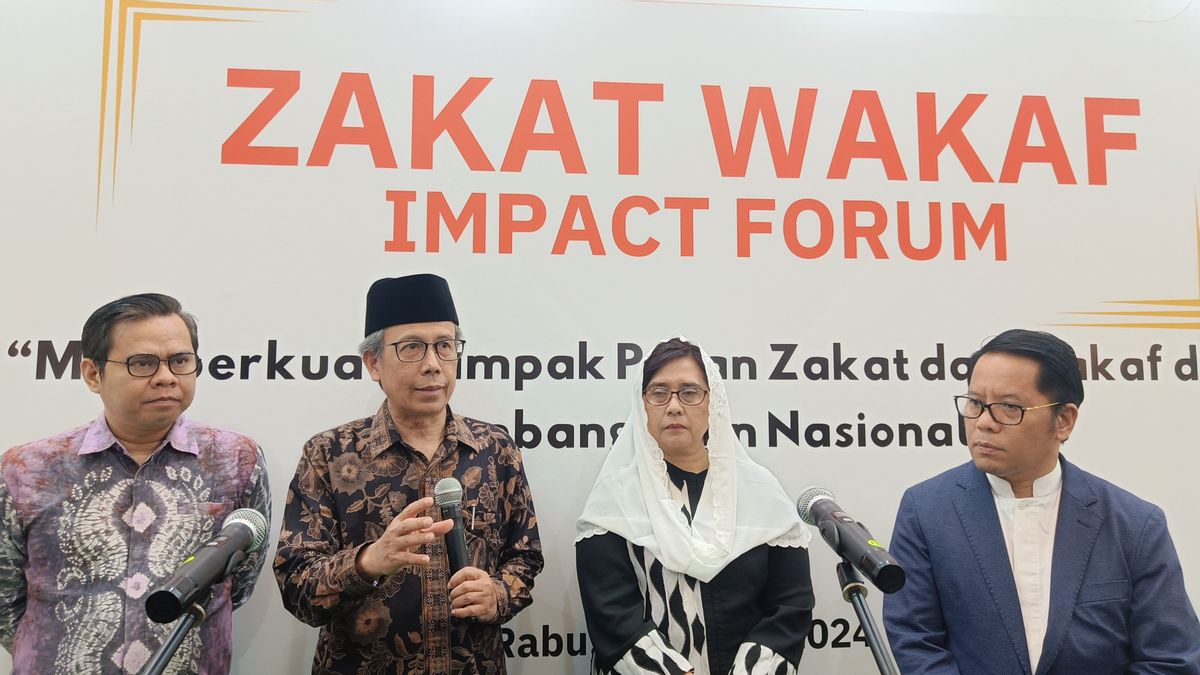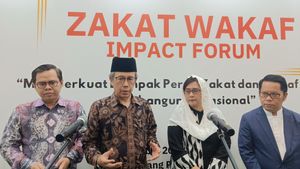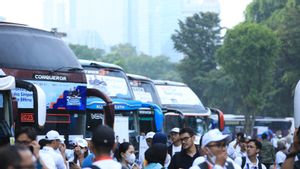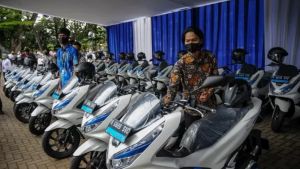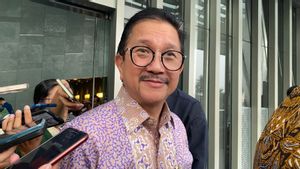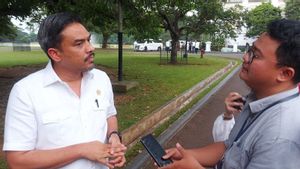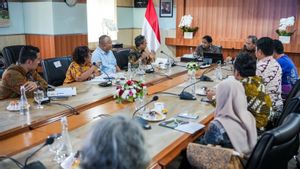JAKARTA - Secretary of the Ministry of National Development Planning (PPN)/National Development Planning Agency (Bappenas) Teni Widuryanti said that the activities of managing zakat, infaq, alms and waqf/ziswaf are still not optimal to date.
In fact, the potential of these activities is able to support development financing in the country.
"The potential of zakat, infaq, alms and waqf is very, really very large and until today it is not optimal. We can actually collaborate as one of the sources besides our obligations as well, but very, very potential to support our development financing," Teni said in his remarks at the Zakat Waqf Impact Forum event in Jakarta, Wednesday, March 20.
Based on the data presented, Teni said, the potential for zakat and waqf in Indonesia is quite large, reaching Rp250.4 trillion.
However, the realization of the collection of zakat funds only reached around Rp. 22.5 trillion.
"So we need to explore it optimally, we are trying to start from collecting, managing and of course the end is the right use. This is our joint commitment," he said.
Teni did not deny that until now there are still a number of challenges faced by Indonesia to realize these existing potentials. According to him, at least four things are challenges.
First, there is still a lack of public understanding of the importance of utilizing sustainable socio-religious funds.
"So, it provides an understanding that actually what is given can really be donated to all the welfare of the community," he said.
The second challenge is the low spirit of community entrepreneurship, especially in developing socio-religious funds productively.
"Third, the challenge is the limited human resources (HR) in the field of religious social funds that have high competence," he said.
SEE ALSO:
Untuk tantangan keempat atau terakhir adalah belum terbangunnya jaringan kerja sama dan kolaborasi antar pemangku kepentingan.
"So, this is a challenge that is our common task to be able to work together. We collaborate to immediately advance and ensure that we can manage these potentials and we make the best use of them," he added.
The English, Chinese, Japanese, Arabic, and French versions are automatically generated by the AI. So there may still be inaccuracies in translating, please always see Indonesian as our main language. (system supported by DigitalSiber.id)
